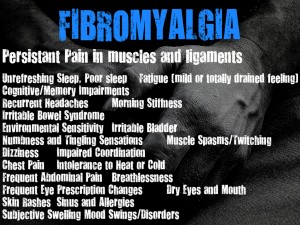[Edited for clarity.]
This morning, the Internet was all a-twitter about #CVSQuits. CVS Caremark, the company that owns the CVS Pharmacy chain, has announced that CVS stores will be phasing out the sales of tobacco products. The move is an excellent publicity stunt, but, in my view, not terribly meaningful in terms of helping people’s health. Here’s why, based on what I know as a former CVS employee. (For the record, I left because I graduated college and got an office job, not because I was fired. Whenever I shop there, my former boss still tells me how much he wished I’d stayed.)
CVS isn’t really, or at least exclusively, a pharmacy.
Many of the people praising CVS on Twitter are asking why a “drug store” or “pharmacy” was in the business of selling tobacco products in the first place. The answer is simple: CVS stores are not pharmacies that happen to sell a few toiletries. Really, all CVSes are a full-on mass-merchandise retailers that happen to house pharmacies. In some areas, the local CVS serves as a general store. This is especially true when it’s a 24-hour store walking distance from working-poor neighborhoods.
CVSes in areas like mine actively participate in food-desert-like situations.
My store was the only walking-accessible store that sold groceries for several housing complexes filled with the working poor. Those with cars could shop at the closest grocery store, a Vons whose groceries were far more expensive than those from other local grocery chains. Those with cars who also had the time could go to an even further grocery store whose prices were better. I was lucky enough to have the time, work schedule, energy, and vehicle to make the trip to an Albertson’s several miles away. Many of my customers lacked that option. Their diets consisted of crappy food from our store which, to add insult to injury, could have been obtained much more cheaply from an actual grocery store.
CVS sells quack remedies.
Nearly everyone knows that smoking is bad for their health; smokers don’t smoke because they think it’s healthy. However, not everyone knows that CVS sells homeopathic “remedies” alongside actual medicines that contains active ingredients. The packaging and messaging is similar enough to ensure confusion. Meanwhile, cigarette packaging sports clear and prominent health warnings and tobacco products are hardly sold alongside, say, candy, or without age restriction.
CVS, like many retail stores, employs exploitative retail labor practices that create the working poor class.
Shuffling around hours regardless of people’s family life? Random scheduling at 24-hour stores that throws off sleep cycles? Punishing employees who call attention to scheduling mistakes by erasing their hours from the schedule rather than switching them with another willing employee? I’m not talking about Wal-Mart — CVS does those things all the time. I worked at a location where the regional manager was also the store manager and I knew people who worked at other stores in the region who had similar experiences, so schedule fuckery is hardly a one-off or rare occurrence. This might not be the case for other regions, but I happened to have worked for a fairly busy one.
Retail exploitation of labor leads to poor health outcomes, including nicotine addiction, due to stress and exhaustion. Sure, I read Nickel & Dimed when I was an adolescent, but nothing could prepare me for living like that myself: I was always tired. No amount of caffeine or supplements (both obtained at the oh-so-generous 20%-off employee discount) could alleviate the exhaustion that pervaded my life when I worked at CVS. I had the advantage of not having lived like that my whole life or having dependants. My coworkers were not so lucky. Many of them were parents and had other part-time jobs, which, along with the CVS gig, enabled them to scrape together a meager living. Their working-poor exhaustion reached levels I could not fathom. Judging or blaming them for using their 15-minute breaks to have a smoke would have been cruel.
Smoking rates continue to fall, but exploitative labor practices continue to rise.
The numbers don’t lie. CEO pay is rising while worker pay and benefits are falling. What used to be jobs by which teenagers could earn extra cash (retail, fast food, and so on) now constitute many adults’ main source of income. Remember my coworkers who worked multiple jobs? There are very few full-time positions available in retail; most retail positions these days are “part-time” (read: 35-hour-a-week) jobs designed to ensure that people aren’t eligible for benefits. As a result, people with dependents are forced to work two or three jobs in order to make ends meet. This means juggling transportation as well as multiple schedules and uniforms, ensuring more difficulties for people whose lives are already difficult.
Meanwhile, smoking rates have been dropping relatively steadily and rapidly. This isn’t to suggest causation or even correlation, just disingenuity on the part of CVS. People who are working poor tend to have worse health outcomes due to a lack of healthcare, nutritious diet, and sleep.
Despite that tweet, CVS continues to engage in practices that encourage such outcomes in their workers, who, I guess, don’t count as “people” to them.
Until CVS starts treating its workers in a way that enables optimal health outcomes, moves like #CVSQuits are mostly publicity stunts to me. The only effect this is going to have is to elevate CVS’s profile and perhaps alleviate feelings of hypocrisy among their direct pharmacy staff. I doubt it’s going to make anyone much healthier.





